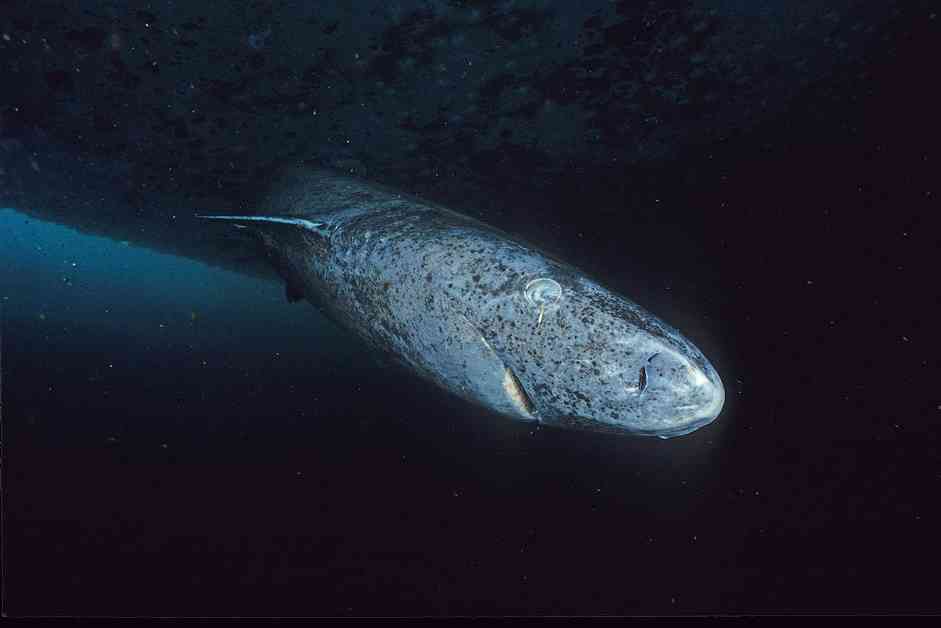Greenland sharks have been found to have a potential lifespan of over 500 years, making them the longest-living vertebrate species known. This discovery has sparked interest among researchers who believe that studying these sharks could provide valuable insights into human health and the conservation of vulnerable species in the face of climate change.
At the Society for Experimental Biology Annual Conference in Prague, researchers shared their findings on the metabolic activity of Greenland shark muscles. Unlike most other species where metabolic rates decrease with age, the metabolic activity of Greenland sharks remains constant as they grow older. This unique trait could hold clues to understanding cardiovascular health and aging in humans.
Ewan Camplisson, a PhD student at the University of Manchester, explained that by studying the enzyme activity in Greenland shark muscles, researchers found that the sharks’ metabolism does not slow down with age. This discovery challenges the traditional signs of aging observed in other animals and could potentially lead to advancements in treating age-related conditions in humans, such as heart diseases.
The study also revealed that the metabolic enzymes of Greenland sharks show higher activity levels in warmer temperatures, indicating that their muscle metabolism is not solely adapted for polar environments. This finding has raised concerns about the species’ vulnerability to climate change as warming temperatures could impact their survival.
Despite their long lifespan, Greenland sharks face threats to their survival due to their slow reproductive rate and long generation times. With climate change altering their natural habitats, these sharks may struggle to adapt quickly enough to survive. Researchers like Camplisson are working to expand their studies on Greenland sharks to better understand their metabolic activity and develop strategies for conservation.
Through further research on the genetic factors behind the Greenland shark’s longevity and stable metabolism, scientists hope to uncover key genes or pathways that promote health and longevity. This knowledge could lead to the development of new treatments and therapies to maintain heart health and metabolic functions in humans as they age.
Overall, the study of Greenland sharks not only sheds light on the secrets of their long life but also highlights the urgent need to protect these species in the face of climate change. By understanding how these sharks have evolved to thrive in their environment, researchers aim to develop conservation strategies that can help preserve these ancient creatures for future generations.






